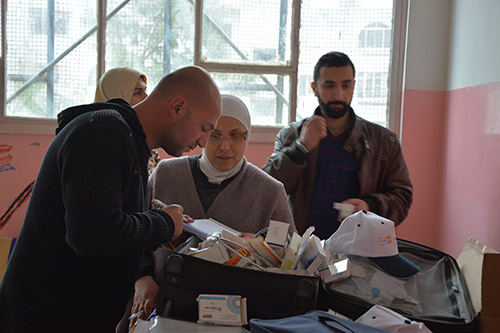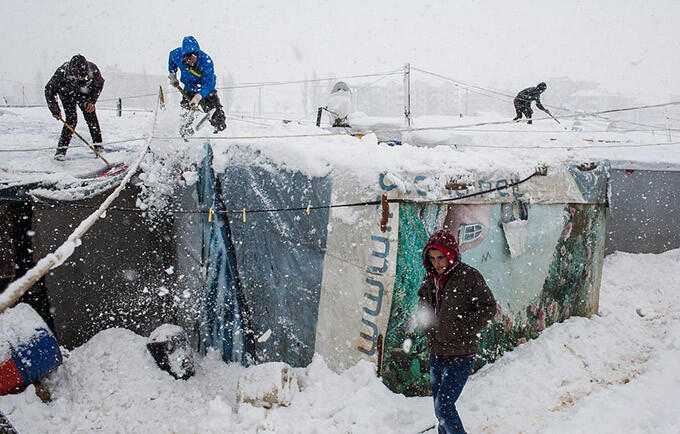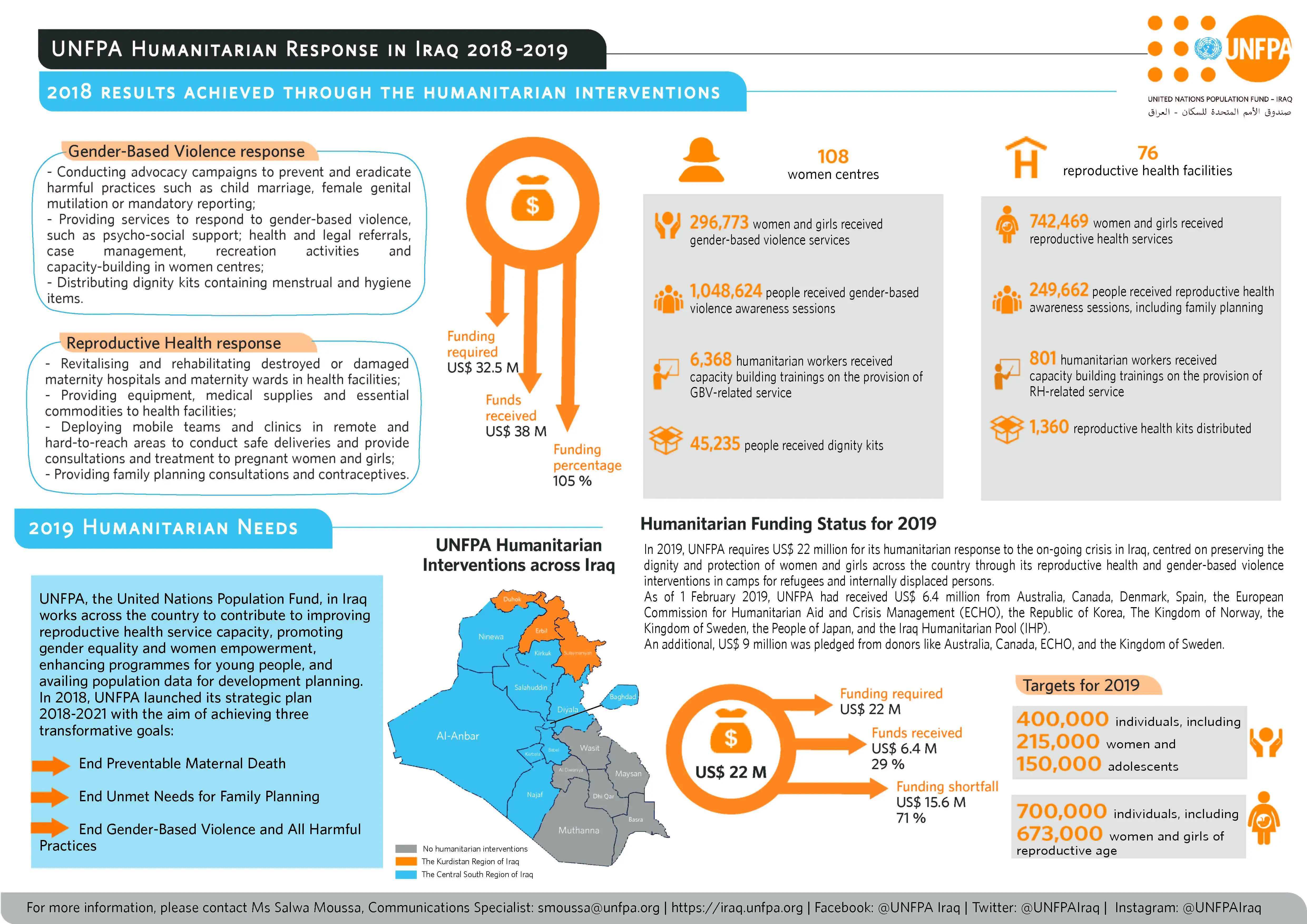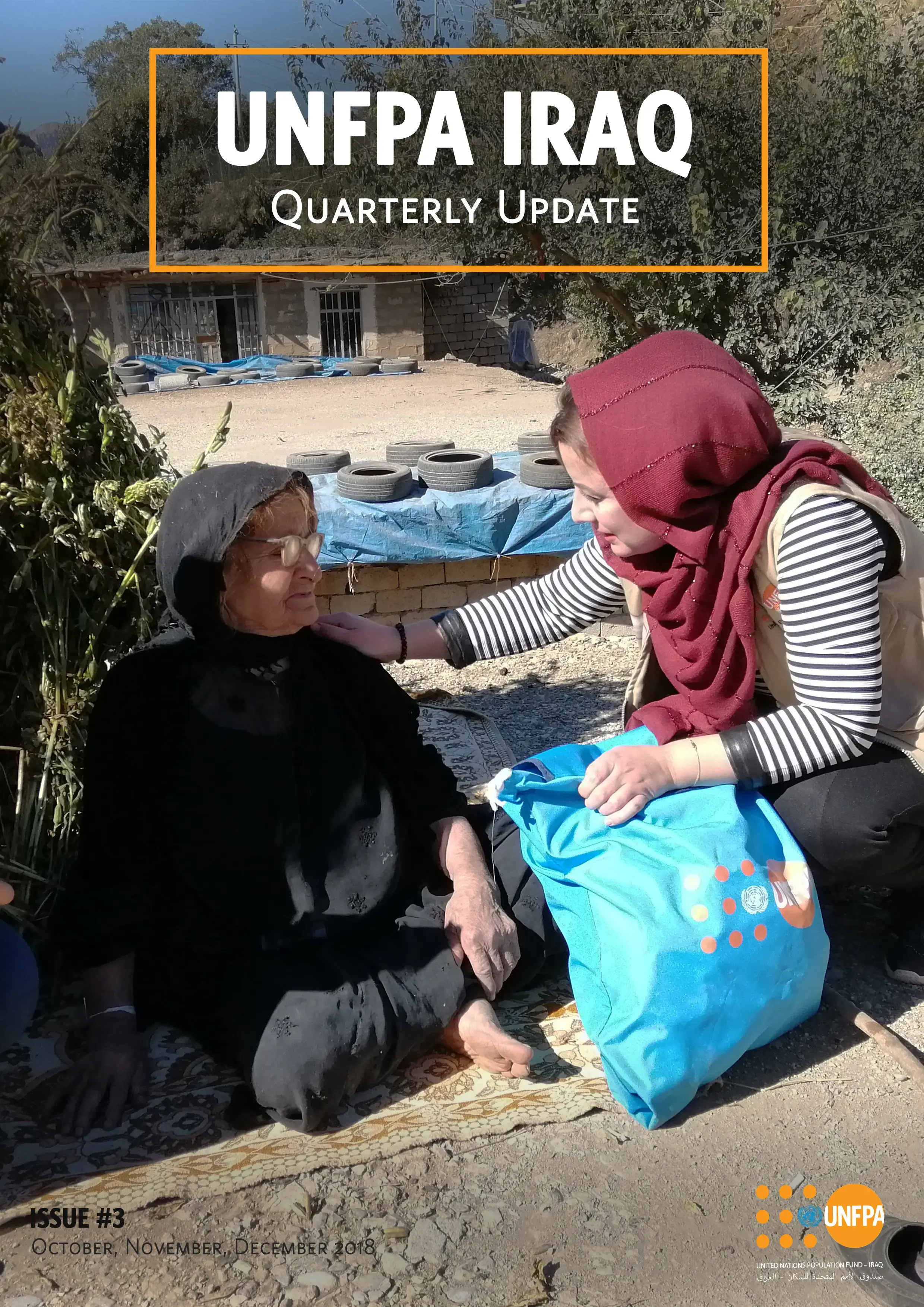BEIRUT/DAMASCUS/ERBIL/ZAATARI – Fierce winter weather continues to batter displaced populations in the Middle East, crippling transportation and interrupting vital services. “A bullet to the chest without armor, that’s what a storm of this proportion feels like for people with little shelter,” said a Syrian refugee woman in Saida, Lebanon.
The harsh weather has compounded the man-made tragedy of the Syrian civil war. Many displaced families are living in unfinished buildings or flimsy shelters without electricity or heating. Iraq, Jordan, Lebanon and Syria have been most affected by both the conflict and the brutal winter weather.
“They were burning whatever was accessible – nearby plastic, wood, or even clothes,” said Dr. Quteiba Shehab, a gynecologist working in a mobile clinic operated by the Syria Family Planning Association (SFPA), with support from UNFPA, in the rural Sahnaya area of Damascus.
Mobile clinic reaching displaced
Health workers in Syria have been braving hazardous road conditions and bitter cold to continue providing essential care. The SFPA mobile clinic, for example, continued to deliver reproductive health services, including prenatal care, family planning counsellign and other critical care, to displaced women.

Maysara, who works in the mobile clinic, said, “Despite [the fact] that not all staff of the SFPA were capable of reaching the office during the latest snow storm, we as a mobile clinic team insisted on finding a way to continue our usual work, aiming to provide medical services to the deprived internally displaced persons located in Sahnaya.”
Moving in and around Damascus has been treacherous, said Dr. Quteiba. “The car was moving sluggishly to avoid any sliding on the roads inside Damascus, and towards rural Damascus… the roads were mostly closed.”
He added, “When I was inside the mobile clinic, leaving towards the shelters in Sahnaya, I was unable to feel my frozen feet due to the extraordinarily cold weather.”
The mobile clinic also distributed hygiene kits, which contain soap, feminine hygiene supplies and warm winter clothing.
Om Nidal, currently residing in Syria, said she was happy to receive a hygiene kit, “in particular when it includes a winter small blanket and winter socks.”
Region-wide response
Health workers in Iraq, Jordan and Lebanon are also working to deliver care where it is needed.
In Iraq, during ten days of hostile storms, UNFPA-supported reproductive health services reached over 1,200 Syrian refugee women in the camps and host communities.
And in Jordan, health workers worked around the clock, to continue providing care in the Zaatari refugee camp despite dangerous storm conditions.
Enduring cold, heartbreak
The responders say their work has been difficult, and sometimes heartbreaking.
In Lebanon, a mid-February snowstorm paralyzed health services, making emergency transport on foot or by vehicle nearly impossible. Nina Masri, a social worker at a UNFPA-supported women's centre in the Akkarouna Region, recalled the tragedy suffered by a displaced Syrian family during the storm.
The parents decided “to send their boys to sleep at neighbor's house, while they kept the little girl, who was breastfeeding, with them in the shelter,” Ms. Masri said.
But the shelter was not warm enough, and the baby died in the night.
Ms. Masri and her colleagues were deeply moved. The family “did not only go through the hardship of displacement but, worse, the loss of a child,” she said.
Together, they are helping to reinforce the family’s shelter against the elements. “We started, and still are, rehabilitating the shelter, [re]placing a ceiling, supporting winterization of it, putting on a door and windows," she said.




